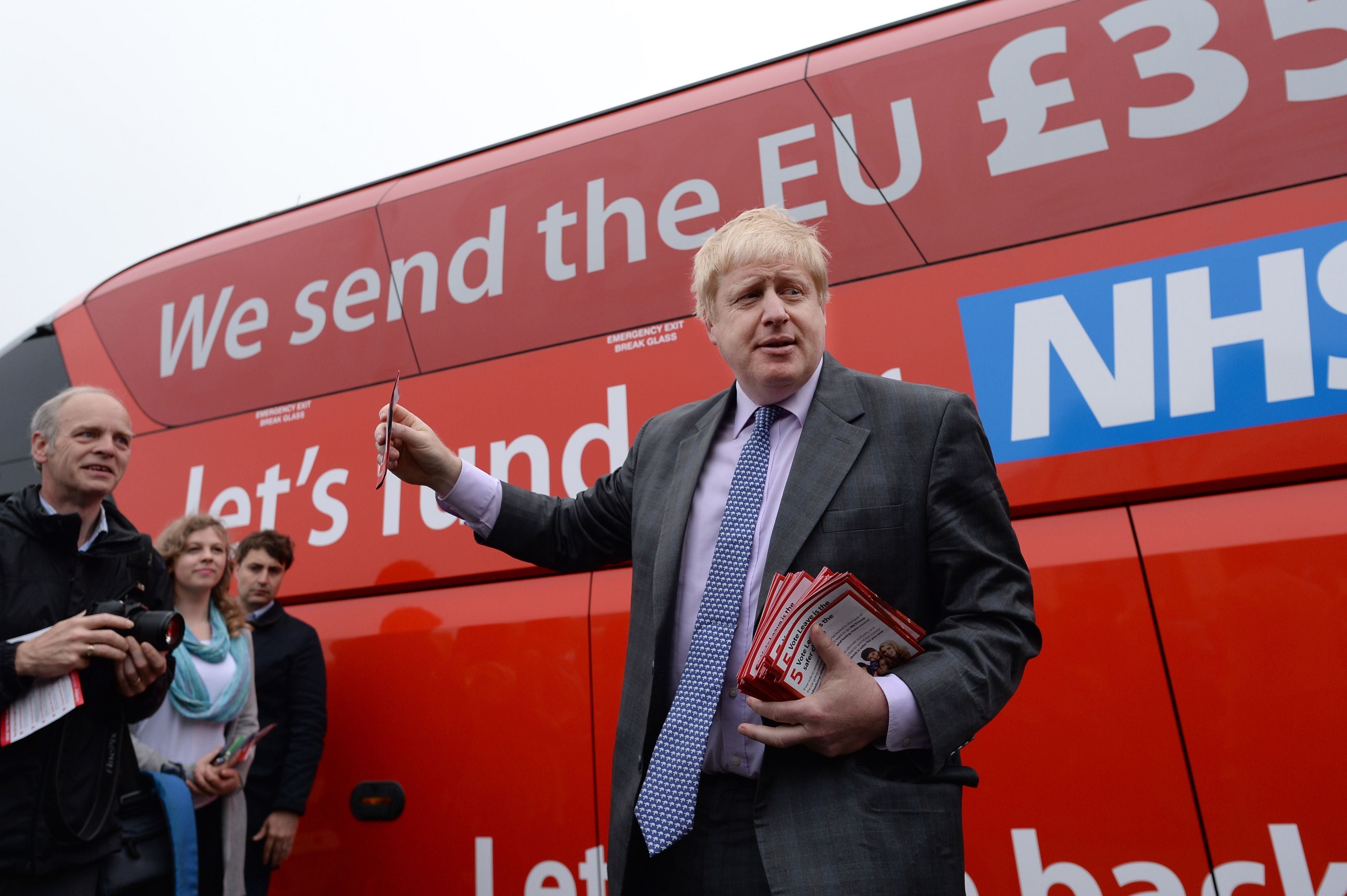This is Trump’s Brexit disaster moment and the same big lie is being told
As Trump introduced his tariffs he railed against the damage done to the American economy by the EU, writes Chris Blackhurst. It was straight out of the Brexit playbook – and the US is about to suffer the same fate


The Brexit drums are beating again. Donald Trump’s decision to lessen the UK’s tariffs versus the EU is being hailed as proof of Brexit success. You see, we were smart to put distance between ourselves and Europe, look at this dividend.
Not only does that analysis ignore the fact that back then this customs onslaught and with it, more favourable treatment for Britain, was not even the subject of speculation, it chooses to ignore the preceding years of harm.
It also pays no attention to the ongoing simple truth that most businesses would still prefer to see a Britain able to exploit the free movement of goods and people with its neighbours. They miss the EU and they’ve struggled to substitute the lost trade and skilled workers. They have also had to contend with stifling red tape and delays on top of their other burdens.
All of this seems to pass the Brexiteers by. As does the fact that the City, a linchpin in our economy, is wilting as bankers and traders decamp to desks in the EU. Their current preference? Milan.
Not London, not anymore. For five decades, the UK capital basked in its position as the geographic and economic springboard for companies seeking an entry into the EU. Those heady days have gone.
Still, Trump has come up, well, trumps. There is though another connection between his tariffs blast and Brexit. The entire Trump ethos is based on the past, on the idea that America can be made great again, that US manufacturing can be reborn.
It owes much to the boy in New York who grew up in a period when America really was booming and leading the world. They were American limousines that prowled the streets, American brands that sat atop the Manhattan towers. Then, those vehicles were replaced by cheaper, better models from Europe and Asia, from Germany and Japan – countries that had previously been wrecked by war and benefited from US financial largesse. Those sky-high domestic names became foreign. Bit by bit American might and majesty waned.
In real estate, the self-styled arch-negotiator, found himself losing out to overseas investors. They had the money, they called the shots. That rankled. The ‘Art of the Deal’ author saw America retreating and reduced.
Put like this, Trump’s credo has a familiar ring. On this side of the Pond, we were told over and over how Britain had also lost its power, its independence, that our historic, hard-won hegemony had been subjugated to Brussels. The argument had an imperial flavour. Leaving would make Britain great again.
Trump believes he has put America in charge of its own destiny. That was the declared aim of Brexit, to take back control.
He’s presented his move as reacting to a ‘National Emergency’. That also bears echoes. Anyone reading the adverts on the side of London buses during the Referendum campaign would be entitled to be baffled by the claims made. The UK, the nation that for years stood alone against Nazi tyranny was apparently now seeing cash draining away, taken by those very countries which it once so bravely defended. Compare that with the messages to Europe from Trump and JD Vance these past few months and you wonder if they’ve not been studying the Brexit playbook.
The NHS was not being starved of resources as the Europhobes claimed, but it did the trick. Today, Trump is proclaiming America has been ‘raped and pillaged’ by the EU.

Just as the UK economy was in good shape prior to Brexit, so too was that of the US before his tariffs attack. The Remainers did a poor job of fighting their corner; arguably, Trump’s predecessor was equally lacklustre at pointing up his achievements. The Brexiteers filled the vacuum; Trump marched in and stole the Democrats’ ground.
The then UK government displayed a weak grasp of place and workings of the economy – famously Dominic Raab did not know the vital role played by the Dover-Calais route. Trump and his supporters are showing a not dissimilar lack of knowledge in failing to understand the joined-up, inter-dependent nature of world trade, how those US products rely on imported parts and materials.
Prices rose in the UK post-Brexit and items were in short supply. America can expect the same.
There was the prospect here of British factories and workers stepping up. It has not happened. Trump is looking to his plants and citizens to replace what has been lost. We wait to see whether they do.
All because the principal architects have a sepia-tinted view of the past. They fail to realise that the life they remember and the one they read about, gloried in books and stories, had changed. Britain no longer ran anything but was an isolated island; other nations did not rush to do trade deals with us. The US no longer dominates; others may get along fine without it.
Maybe Britain will now, finally, reap that promised Brexit bonanza. Let us hope so, but it will have to go some distance to recovering what was lost. Americans may also soon find themselves scratching their heads and wondering what have we done? For tariffs read Brexit, and not in a positive way.
Far from being Brexit’s moment as its proponents insist, this could well be Trump’s ‘Brexit moment’ which has a different connotation altogether.
Join our commenting forum
Join thought-provoking conversations, follow other Independent readers and see their replies
Comments
Bookmark popover
Removed from bookmarks